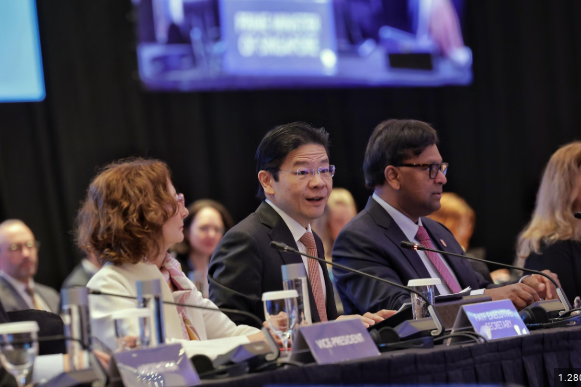New Amendments Aim to Improve Asset Recovery and Extend Probes into Environmental Crimes
Singapore is set to reinforce its asset recovery laws as part of its ongoing efforts to enhance its anti-money laundering and counter-terrorism financing framework. The updated laws will empower law enforcement officers to seek court orders for the sale of seized assets that significantly depreciate in value or incur high maintenance costs, even before court cases conclude. This will include luxury items such as fine art, antiques, investment-grade wine, exotic livestock, and racehorses, which are often targeted in illicit activities.
Prime Minister Lawrence Wong announced these changes as part of the country’s national asset recovery strategy, speaking at the opening of the Financial Action Task Force (FATF) Plenary Meeting in Singapore. The country’s efforts are seen as crucial in addressing global illicit financial flows, estimated at US$2 trillion to US$3 trillion annually. Despite progress, recovery rates of these illicit funds remain low, with current recovery figures at just 3%, up from less than 1% a decade ago.
The new approach is aligned with FATF’s updated standards, aiming to improve international cooperation in asset confiscation, with countries being encouraged to recognize and enforce each other’s court orders. Singapore has been active in its fight against money laundering, as evidenced by its substantial seizure of criminal assets, including over S$6 billion linked to illegal activities between 2019 and 2024. The country has also returned S$416 million to victims and forfeited S$1 billion to the state.
The upcoming Anti-Money Laundering and Other Matters Bill is expected to introduce further measures, including provisions for investigating foreign environmental crimes like illegal wildlife trading, illegal logging, and mining, especially in Southeast Asia. The Bill will also enhance the ability of sectoral regulators to access Suspicious Transaction Reports, helping them improve monitoring and detection of illicit financial activities.
Singapore remains committed to its reputation as a trusted global financial center, and these amendments will help safeguard its standing while actively responding to emerging risks in money laundering and terrorism financing. The country will continue to update and strengthen its legal frameworks to keep pace with global standards and ensure the effective prosecution of criminals who use Singapore to conceal or transfer illicit assets.








